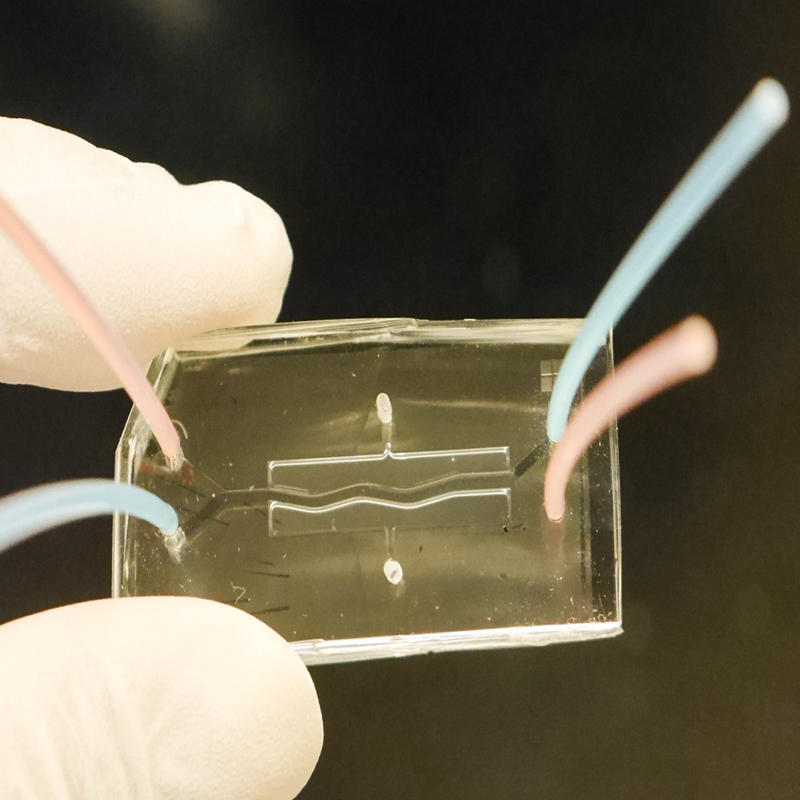Pancreas-On-A-Chip May Advance Cystic Fibrosis Research
Research By: Anjaparavanda Naren, PhD
Post Date: August 12, 2019 | Publish Date: July 16, 2019

“Our technology closely resembles the human pancreas and potentially may help us find therapeutic measures to manage glucose imbalance in people with CF, which is linked to increased illness and death.”
Microfluidic devices have existed since 1979. But innovations in their design and functionality, especially since the advent of organoid technology, now allow researchers to bioengineer human organ tissues and mimic the function of natural organs in a laboratory setting.
Next Steps
The Cincinnati Children’s research team, which includes Naren and study first author Kyu Shik Mun, PhD, plans to use the devices in a pilot study to test FDA-approved drugs that modulate CFTR gene expression.
Their goal: to determine how well different drugs that affect CFTR expression slow or reverse lab-simulated cystic fibrosis-related diabetes.
Watch Channel 12 news story about the project
Read More.
| Original title: | Patient-derived pancreas-on-a-chip to model cystic fibrosis-related disorders |
| Published in: | Nature Communications |
| Publish date: | July 16, 2019 |
Research By





